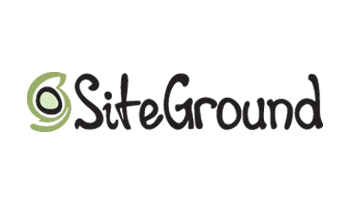Should I Register A Domain Name With My Web Hosting Company?
- By
- Last updated:
- Leave your thoughts
Is it better to buy a domain name from a web hosting company or from a domain name registrar? This is a valid question — especially if you’re just about to launch your very first website.
Both approaches have their pros and cons, obviously, but, as with most things these days, the devil is in the details. Based on your specific requirements, getting your domain name from a web hosting company may be a brilliant idea… But not always.
Let’s look into this in more detail. Here’s why you should and shouldn’t buy a domain name from your web hosting company.
Table of Contents
‘What’s This about Anyway?’
Just to make sure we’re on the same page (in case you’re not entirely sure what this article is about):
When you’re in the market for a website domain name, you’ll naturally need web hosting as well. Therefore, there are two main approaches you can take: Either (a) get the domain name and the hosting from two separate companies, or (b) get them both from the same company — your web host.
Interestingly enough, pretty much all of the leading domain name registrars now offer web hosting services as well. This means that even if you go to a company such as GoDaddy — known primarily for domain registration — you can still walk out with a bundled deal of hosting and domain.
However, you can also do things the other way around. You can go to a well-known hosting company and get the same bundled package from them as well.
Key Factors to Consider When Making a Decision
The most significant factors include:
- price
- convenience and what you want to do with your domain name
- what could go wrong? Aka security and quality.
Let’s take it from the top:
1. Price
So, which is cheaper? Buying a domain name from a web hosting company or from a domain name registrar?
In short, getting your domain name and hosting from the same place can indeed be cheaper, but that depends on the specific company you choose.
To give you an idea of what kind of prices we’re talking about, here’s a quick table showing what the more popular domain registrars and hosting firms have to offer:
| Registrar | .com | .net | .org | .co | .xyz | .club |
|---|---|---|---|---|---|---|
| GoDaddy | $11.99 | $11.99 | $7.99 | $11.99 | $0.99 | $9.99 |
| Namecheap | $10.69 | $12.88 | $12.48 | $6.88 | – | $0.88 |
| DreamHost | $11.95 | $13.95 | $13.95 | $24.95 | $2.95 | $19.99 |
| SiteGround | $14.95 | $14.95 | $14.95 | $29.95 | $12.95 | $14.95 |
And here are the entry-level hosting prices with the same companies:
- GoDaddy: $3.99 a month = $47.88 a year
- Namecheap: $9.88 a year
- DreamHost: $7.95 a month = $95.40 a year
- SiteGround: $3.95 a month = $47.40 a year
Now, the interesting part: Here are the domain registration prices with each of the companies if you’re also getting your hosting from them:
- GoDaddy: free (for the initial registration period)
- Namecheap: standard ($0.88 and up, depending on the TLD)
- DreamHost: free (for the initial registration period)
- SiteGround: standard ($12.95 and up, depending on the TLD)
How to read this:
- So, if you get a
.comdomain name and hosting from GoDaddy, for example, you pay $47.88 for the first year in total. - On the other hand, if you get the same
.comfrom Namecheap and then an entry-level hosting from SiteGround, your total bill is going to be $58.09 for the first year.
But that’s not the end of the story. What’s tricky here is that even though the prices for the first year tend to be attractive, they can increase as soon as the second year comes around.
For example, with Namecheap you can get a .club domain name for $0.88 and hosting for $9.88 a year as you come through the door. But in your second year your domain bill will grow to $10.88 annually, and the hosting bill to $38. Put together, that’s $48.88. As you can see, things are not that black and white.
To sum up this pricing talk:
In a nutshell, you shouldn’t spend too much time worrying about the pricing aspect of the bundle deal.
What you should do instead is try to find out who offers the best WordPress hosting you can afford, and only then look into the company’s domain registration options. If there’s an attractive bundle deal, you can take them up on it.
For example, if you decide SiteGround hosting is what you want, the next step should be to check the prices of domain name registration with SiteGround. If that price tag is something you’re okay with, you can get both the domain name and hosting from them. If not, get the domain from someone else.
Of course, SiteGround is just an example here. This applies to any other company just as much.
2. Convenience
Aka what you want to do with your domain name once you have it.
Naturally, the most common thing to do right after getting your hands on a new domain name is to create/launch a website — and you’ll need a hosting account alongside the domain name to make that happen.
This is where the topic of convenience comes up. I’m sure this won’t come as a surprise, but buying a domain name from your web hosting company is a lot more convenient.
In most cases, the company is going to take care of connecting the domain name and hosting for you. This means you’ll have everything configured to work together right out of the box.
The only thing missing will be your website — and even that’s not certain. Depending on the company you decide to host your site with, they may also install a blank version of WordPress for you — meaning you’ll just have to install a theme, some plugins and then begin using your website right away.
On the other hand, if you want to buy the domain name from a separate registrar, you may be forced to connect the domain and the hosting on your own. Granted, this is not super difficult, and the support team at either company should be happy to help you figure it out, but it’s still something you’ll have to do, rather than have someone else handle it for you.
So, in general, getting your domain name and hosting from the same company will be more convenient overall, provided you want to buy a single domain, so you can launch a single website.
(If you’re planning a broader project — one that requires a handful of domains and different versions of one or multiple websites — then getting your domains and hosting from two separate places may be a more handy setup from a development point of view. It just lets you manage all those domains and what’s going on with them at a given point in time more easily.)
There’s one more thing that relates to the convenience of buying a domain name from a web hosting company versus from a domain name registrar: Not every registrar and hosting company will allow you to register every existing domain TLD. This may be important if you’re interested in one of the newer generic TLDs (.blog, .design, .xyz), or some country-based TLDs (.pl, .ru).
Just to give you an example, if you think DreamHost have the perfect hosting plan for you, but you also want a .it website domain for your Italian customer base, then tough luck: DreamHost don’t support this TLD.
That being said, if you’re looking for a classic .com, then you’ll be able to register it with every domain name registrar on the planet.
3. What Could Go Wrong? Aka Security and Quality
Last, but certainly not least, we have the topic of what could go wrong with your domain name and hosting setup.
And it basically comes down to this:
When we talk about the pair of your website domain name and your web hosting setup, the domain name is the element you’re a lot less likely to be dissatisfied with.
First of all, domain names are a regulated market. There’s an organization called Internet Corporation for Assigned Names and Numbers (ICANN) that monitors the market overall and regulates domain registrars to some extent.
Also, considering what domain names actually are — web addresses that point to and identify websites (a very simplified definition: here’s a better one) — it’s very uncommon for a domain name to ever stop working all of a sudden. As long as you pay your annual domain registration bills, your domain is going to work just fine 99% of the time.
However, the story with web hosting can be different. First off, hosting isn’t a regulated market in any way, so your mileage with some hosts may vary. And, if you ever do want to move to another host, doing so is much easier if you’ve originally bought your domain name and hosting from separate companies. All you do is just edit the domain’s nameserver settings and you’re done (your original domain name registrar will let you know how to do that, so no worries).
Of course, the more you devote to making the right hosting decision up front — based on your requirements, what you need the hosting for, what type of website you want to launch, and so on — the more likely you are to end up with a great long-term hosting setup overall. Here’s a guide on how to choose the best WordPress hosting.
‘Tell Me What to Do Already!’
Okay, there are always tradeoffs with these things. Some additional convenience in one area costs you less convenience in another area. Same for security, pricing, and so on.
So, with all that being said, and taking all of the above into account, here’s my general advice:
- If you want to launch your first WordPress website on a brand new domain name: Get the domain and hosting from the same company. Start with hosting — research what’s available in the market (here’s some help), and pick the best host for your needs, then get the domain from the same company.
- If you want to launch more than one website, or you’re planning to expand your portfolio rather quickly: Get the domains and hosting from separate companies. Preferably two companies: All of your domains from one, and all of your hosting from the other. This gives you more room to move around and adjust your setup altogether in case your goals change or anything happens.
They say, ‘don’t keep all your eggs in one basket’, but let’s not go crazy here. I believe that both approaches — buying your domain name and hosting from the same company versus from two separate companies — have their place, and the right choice depends only on your requirements.
So what’s your final decision? Are you buying your next domain name from a web hosting company or from a domain name registrar?





All comments are held for moderation. We'll only publish comments that are on topic and adhere to our Commenting Policy.